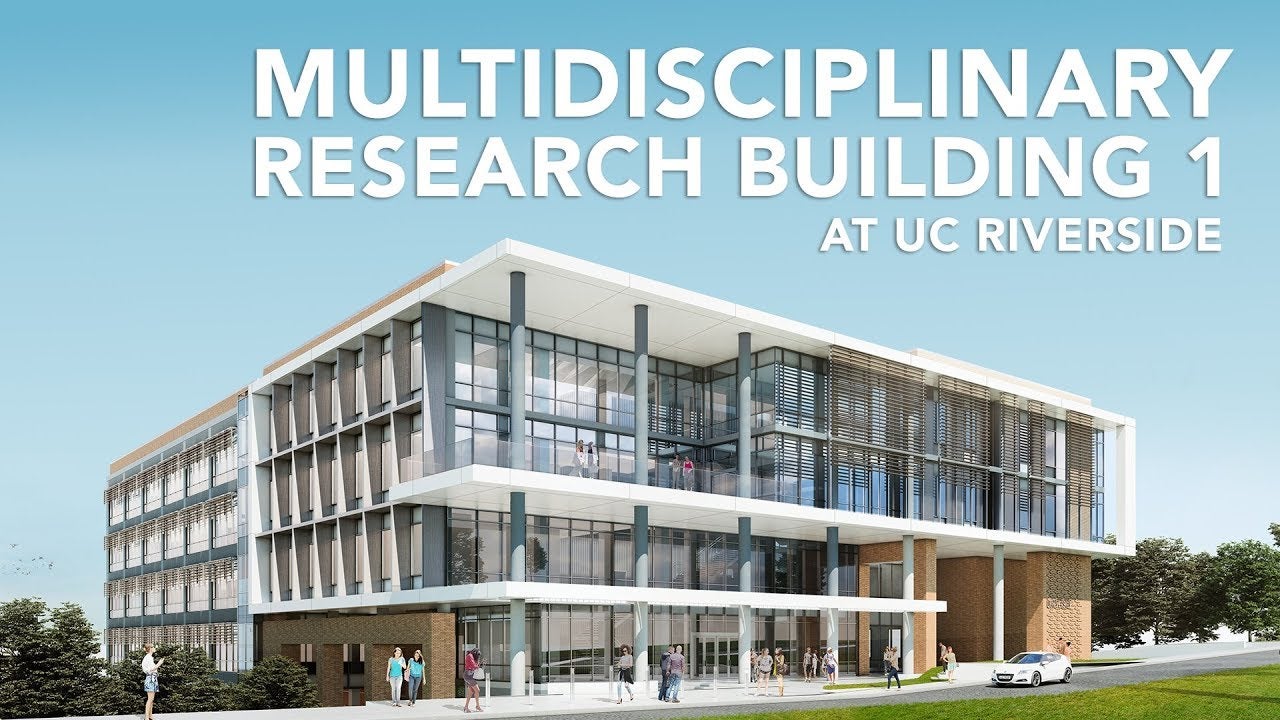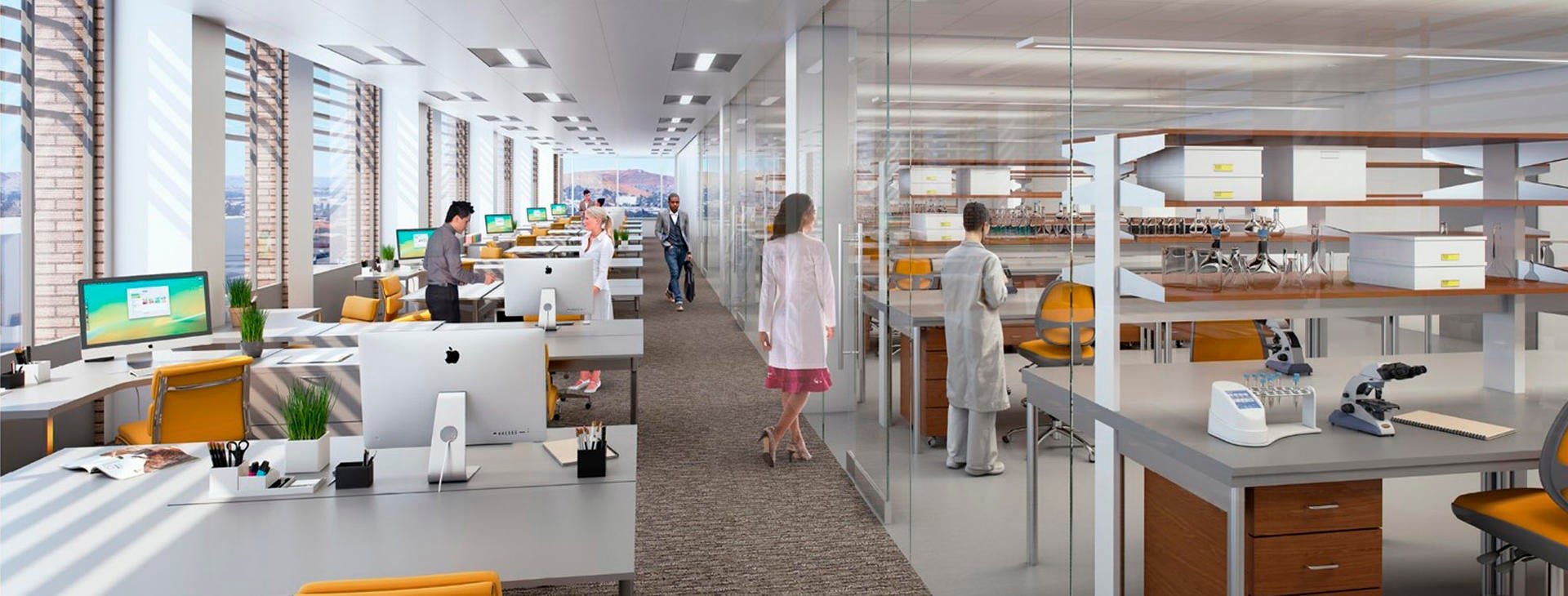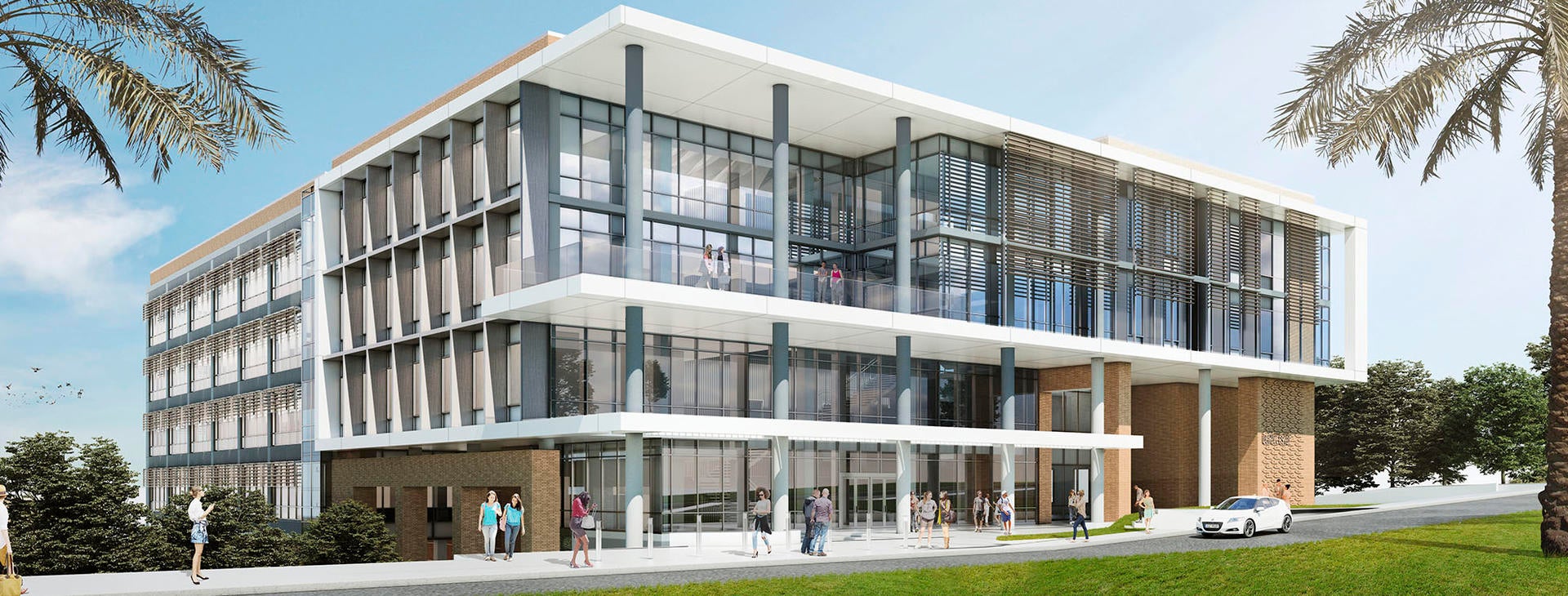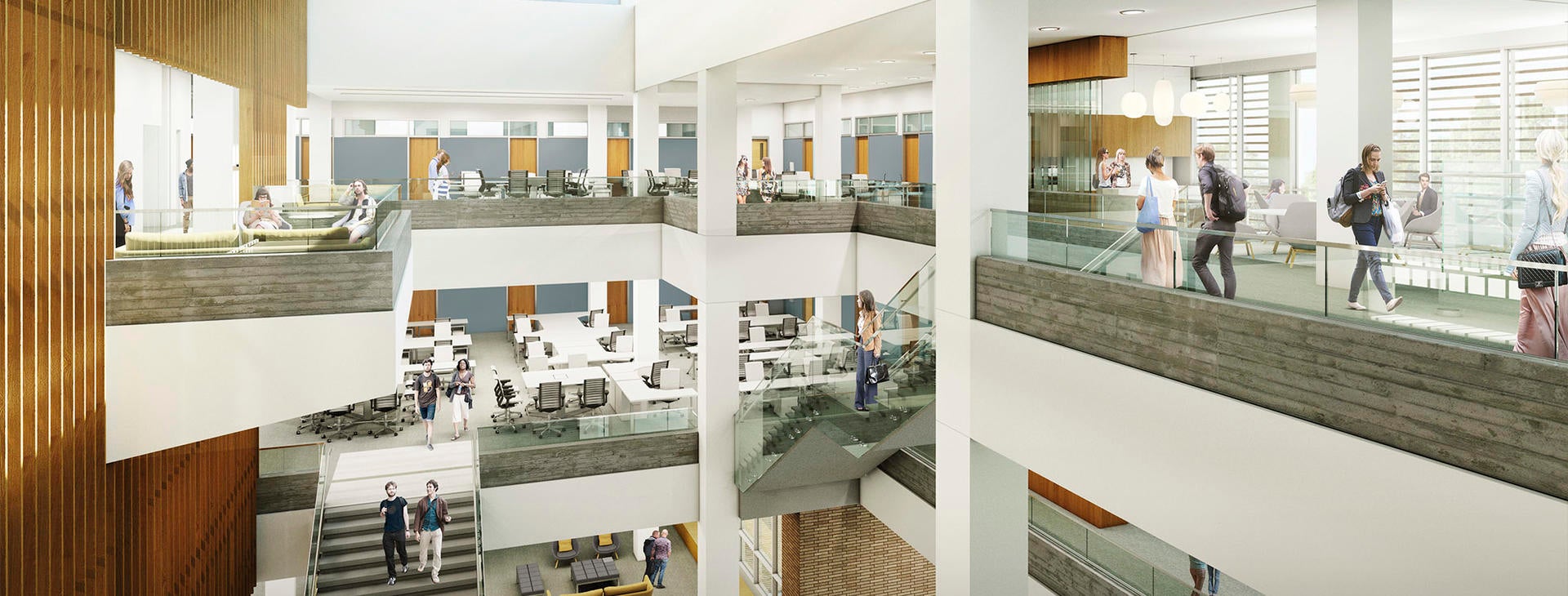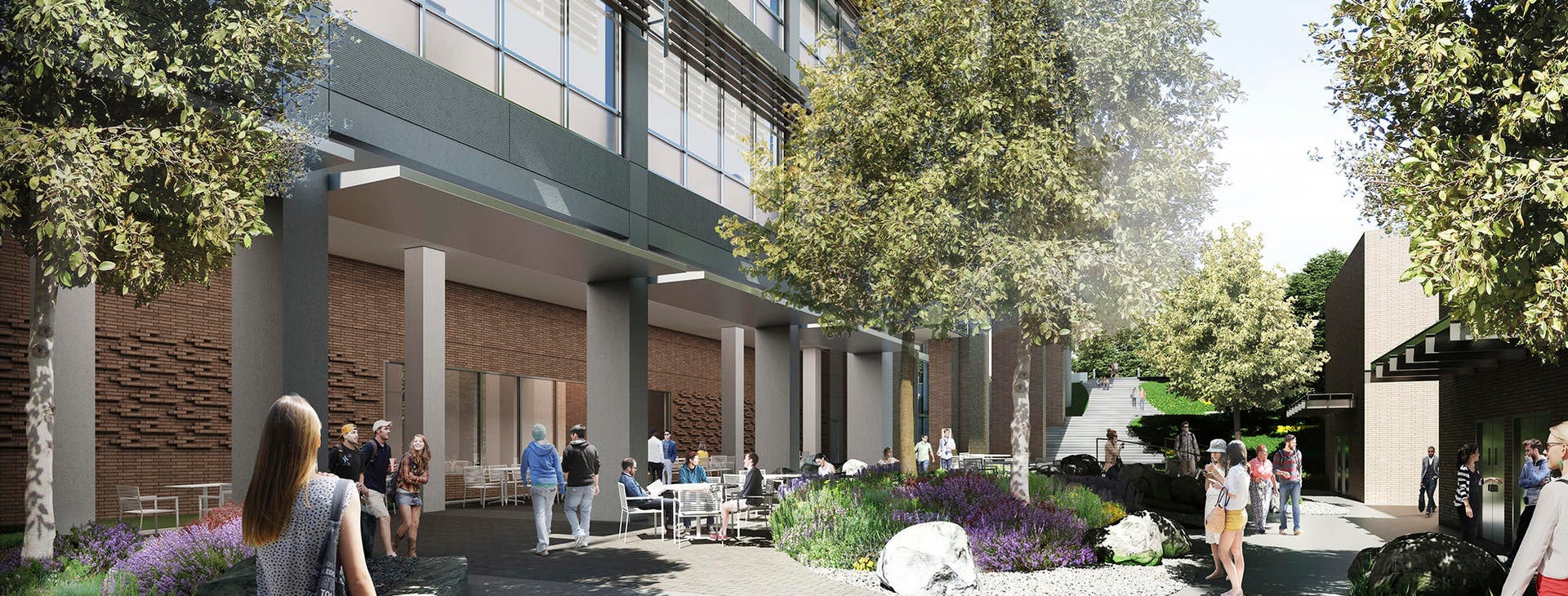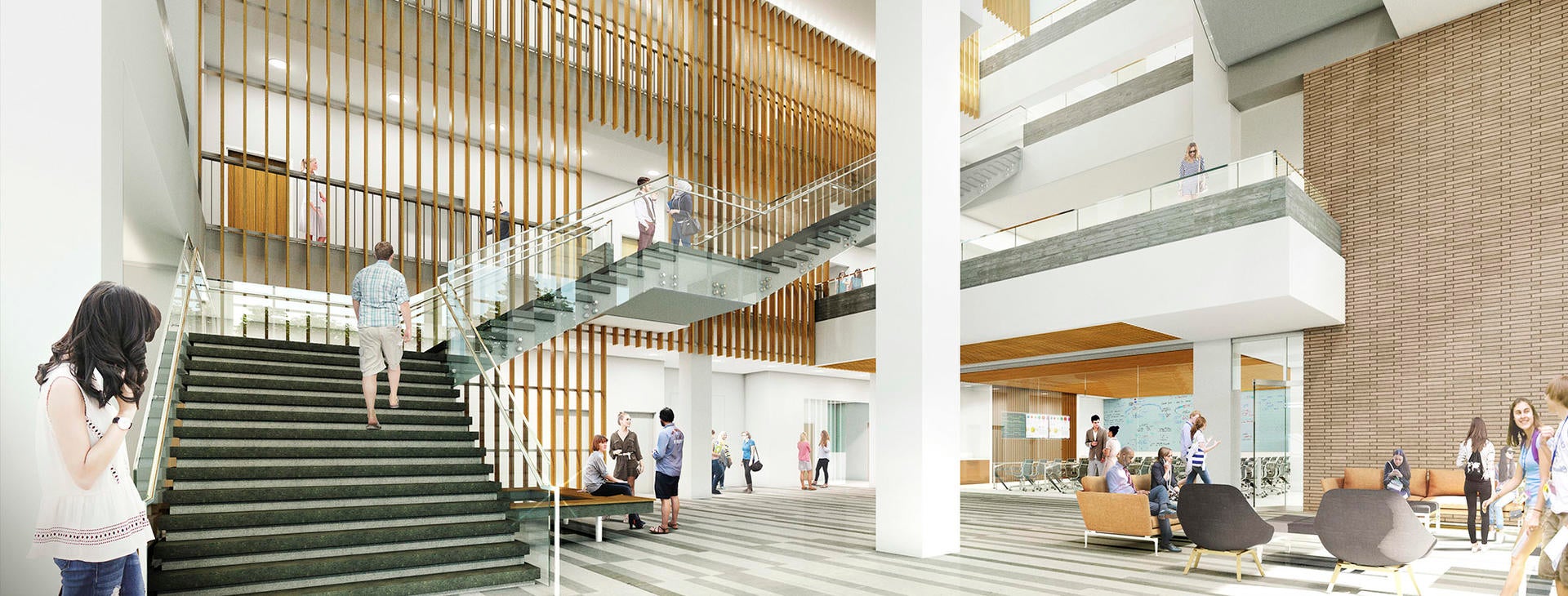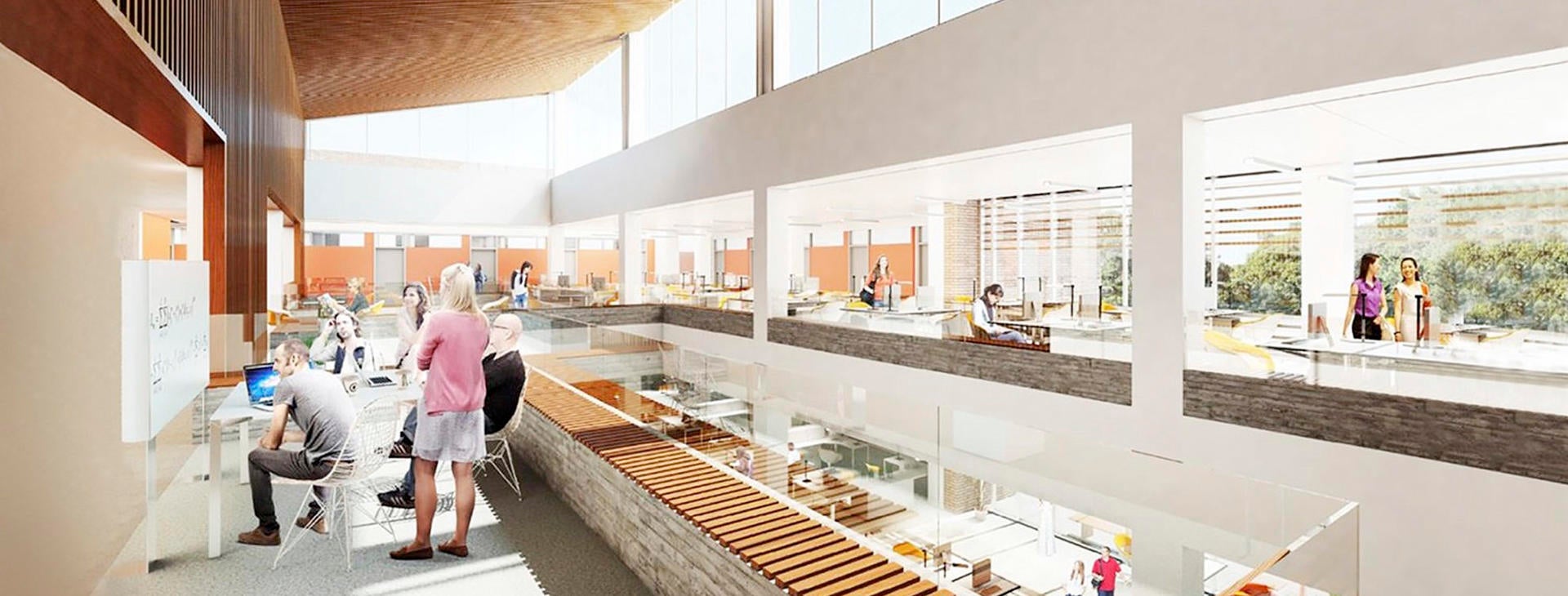University of California, Riverside

Multidisciplinary Research Building
Multidisciplinary Research Building
The new Multidisciplinary Research Building, known as MRB, at UC Riverside is a clear sign of UCR’s bright future. The state-of-the-art building supports research teams working at the intersection of life and chemical sciences, medicine, engineering, and computation to advance health and science across a range of disciplines and themes. Uniting researchers in one place to approach issues from different perspectives and fields of study will facilitate communication and accelerate the pace of scientific discovery. Hands-on learning and collaboration will prepare students to solve complex problems, pursue tech transfer, and join the workforce with a broader understanding of numerous fields and how they intersect.
MRB provides innovative space to create and share new knowledge with the world.
Corporate Strategic Partnerships – connecting you with the world’s brightest minds.
UCR supports companies by:
• securing access to student talent
• making connections to student design/team projects
• discovering joint research projects, leveraging faculty expertise, assisting development of innovative technology
• providing lab space and specialized facilities, particularly for companies interested in expanding or relocating to Inland Southern California
• offering professional development opportunities within colleges and/or University Extension
• identifying strategic giving possibilities that align with social responsibility initiatives
MRB Naming Opportunities
| Multidisciplinary Research Building |
| Atrium Lobby |
| Open Laboratory |
| Wet Lab Incubator |
| Terrace |
| Seminar Room |
| Scientific Gallery |
| Conference Rooms |
| Fourth Floor Lounge |
| Teaming Space |
| Collaboration Space |
| Faculty Office |
|
Specialized pieces of equipment and additional spaces are also available for naming. For more information, please contact the Office of Development at (951) 827-1286. |
MRB Research Teams
-
Data Science Center
A catalyst for new research collaborations between faculty across many colleges, the Data Science Center connects experimental and data scientists to better understand and explore big data.
-
Environmental Toxicology Group
The Environmental Toxicology Group, or ETOX, will work to understand how environmental exposure leads to deaths and human diseases.
-
Food, Bugs, Guts, and Brains
Research interactions within the Food, Bugs, Guts, and Brains group and complementary teams will further develop a dynamic research community dedicated to interdisciplinary studies of the gut microbiome and its relationship to diet, the brain, and behavior.
-
Imaging
Specific areas of interest for the Imaging team include modeling the brain, understanding brain disorders and injuries such as stroke, trauma, and neuroinflammation, and developing novel devices, treatments, and new magnetic resonance imaging techniques.
-
Interdisciplinary Center for Quantitative Modeling in Biology
Collaborative research in the Interdisciplinary Center for Quantitative Modeling in Biology, or ICQMB, will increase our knowledge of the human body and prepare undergraduate, graduate, and postdoctoral students for the challenges of modern biology, which require merging fundamental methods with mathematical, physical, chemical, engineering, and computational approaches.
-
Mind & Brain Health: Neuroinflammation, Neurotrauma, and Neurodegeneration
Focusing on how genetics/epigenetics and life events such as injuries, infections, substance abuse, and exposure to toxicants synergize to cause diseases, the Mind and Brain Health team aims to identify risk factors and tipping points that trigger changes in neuronal function at the cellular, physiological, and behavioral levels.
-
Molecular, Circuit, and Behavioral Mechanisms of Neurodevelopmental Disorders
Collaborators from biomedical sciences, psychology, cell biology, and bioengineering will develop tools and methods to study neurodevelopmental disorders, or NDD, using novel approaches and new technologies.
-
Systems Biology of Infectious Disease
The goal of the Systems Biology of Infectious Disease team is to analyze interactions of pathogens—bacteria, viruses, or other microorganisms— in pursuit of therapeutic interventions to control and prevent the infectious diseases they cause.
